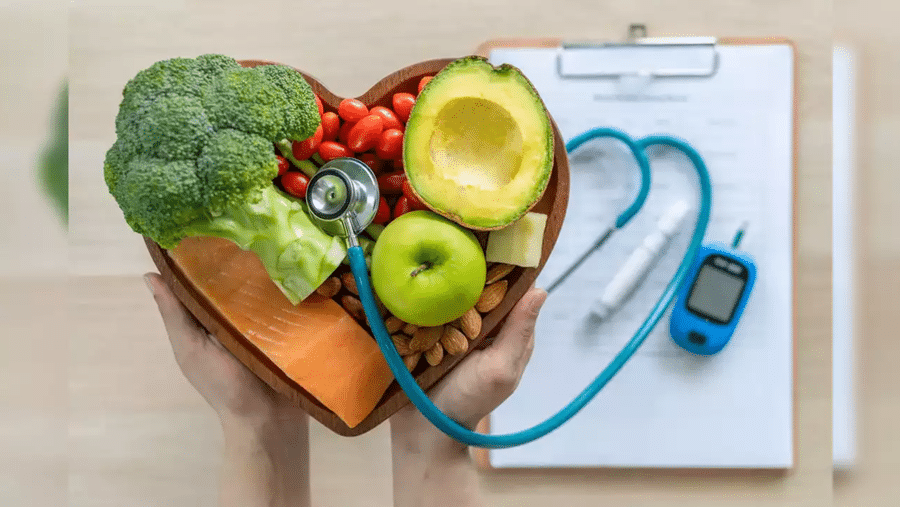Being healthy requires more than just exercise and a balanced diet. To ensure your body is getting all the nutrients it needs, you also need to get enough vitamins. Vitamins are essential nutrients that the body needs to function properly. But with so many different types of vitamins, knowing which ones you should take can be challenging. Do you know which vitamins are the most important for your health? Most people dont. But this article is here to help! It will go over the most important vitamins you need every day and why they are so important for your health. Keep reading for more information!
Contents
Most Important Vitamins You Need Daily
Vitamin C

Vitamin C is an essential nutrient that plays a key role in many bodily functions. For example, it helps to boost the immune system, promote healing, and protect against free radical damage. Vitamin C is found in fruits and vegetables, including oranges, grapefruits, strawberries, and kale. In addition to being a delicious way to get your daily dose of vitamin C, these foods are also packed with other essential nutrients for good health.
For example, oranges are a good source of fiber and potassium, while grapefruits contain antioxidants that can help to reduce inflammation. So next time you’re looking for a healthy snack, reach for a piece of fruit or a handful of veggies instead of mindless munching on unhealthy junk food. Your body will thank you for it!
Vitamin A

Vitamin A is a fat-soluble vitamin that is stored in the liver. It is involved in many important functions in the body, including vision, immune function, and reproduction. For example, the body needs Vitamin A to form retinal, a pigment necessary for vision. Vitamin A is also essential for developing and maintaining healthy skin and mucous membranes. These tissues act as barriers against infection, and Vitamin A helps to keep them healthy.
Furthermore, Vitamin A plays a role in immune function by regulating the production of white blood cells. White blood cells are responsible for attacking foreign invaders, such as viruses and bacteria. Finally, Vitamin A is necessary for the proper development of reproductive organs and for normal fertility. Pregnant women trying to conceive should be sure to get enough Vitamin A, as it is essential for the developing fetus.
While Vitamin A is found in many foods, including fruits, vegetables, eggs, and dairy products, it can also be taken as a supplement. It is important to consult with a healthcare provider before taking any supplements, as too much Vitamin A can be toxic. However, vitamin A can have many health benefits when taken in appropriate amounts.
Vitamin D

Vitamin D is an essential nutrient that helps the body absorb calcium and phosphorus, two minerals that are vital for healthy bones and teeth. Vitamin D can be obtained from food sources such as eggs, milk, and fatty fish, but the body also produces it in response to exposure to sunlight. A lack of vitamin D can lead to a condition known as osteomalacia, which results in weak and deformed bones.
Vitamin D deficiency is also associated with an increased risk of cardiovascular disease, cancer, diabetes, and multiple sclerosis. However, vitamin D supplements are not without risk and should be taken only under the supervision of a healthcare provider. Excessive vitamin D intake can lead to toxicity, which can cause nausea, vomiting, weakness, and kidney damage. The best way to ensure adequate vitamin D intake is to spend time outdoors in natural sunlight.
Vitamin B-12

Vitamin B-12 is an essential nutrient vital in many aspects of human health. Also known as cobalamin, B-12 is involved in producing red blood cells, maintaining nerve tissue, and synthesizing DNA. A lack of B-12 can lead to fatigue, weakness, anemia, and neurological problems. B-12 is found naturally in animal products such as meat, fish, and eggs, but it can also be taken as a supplement.
Vitamin B-12 supplements are often recommended for people who don’t eat enough animal products or have a condition that makes it difficult to absorb B-12 from food. For most people, taking a B-12 supplement is safe and effective. However, some people may experience side effects such as nausea or diarrhea. If you’re considering taking a B-12 supplement, talk to your doctor first to see if it’s right for you.
Vitamin E

Vitamin E is a essential nutrient that offers a plethora of health benefits. It is a powerful antioxidant that can neutralize free radicals, and harmful molecules that can damage cells and lead to chronic disease. Vitamin E also helps to boost the immune system and promote healthy skin and eyes. Furthermore, it has been shown to play a role in cognitive function and may help to prevent Alzheimer’s disease.
Get enough vitamin E. It is important to include foods rich in this nutrient in your diet. Good sources of vitamin E include nuts, seeds, leafy greens, and avocados. You can also take supplements if you feel you are not getting enough from your diet. However, it is always best to get nutrients from food sources whenever possible. You can enjoy all the amazing health benefits this nutrient offers by including vitamin E-rich foods in your diet.
Vitamin K

Vitamin K is a fat-soluble vitamin mainly found in leafy green vegetables. This vitamin is important for blood clotting, bone health, and heart health. Vitamin K can also help to reduce the risk of certain cancers. The recommended daily intake of vitamin K for adults is 90 micrograms for men and 75 micrograms for women. Some good sources of vitamin K include spinach, kale, broccoli, and cabbage. Vitamin K can also be found in smaller amounts in other foods such as tomatoes, soybeans, and eggs. Vitamin K is an important nutrient for many different aspects of health. For example, it is necessary for blood clotting and bone health. It also plays a role in heart health and cancer prevention.
While most people can get enough vitamin K from their diet, some groups may be at risk for deficiency. These groups include those with malabsorption disorders, certain medications that interfere with vitamin K absorption, and those who do not eat enough leafy green vegetables. If you are concerned about your vitamin K intake, talk to your healthcare provider about whether you should take a supplement.
Vitamin B1

Vitamin B1, also known as thiamine, is an essential nutrient that plays a crucial role in the body’s metabolism. While it can be found in various foods, including meat, poultry, fish, and whole grains, many people do not get enough thiamine in their diet. This can lead to a deficiency, which can cause serious health problems.
Symptoms of a thiamine deficiency include fatigue, weight loss, confusion, and depression. Left untreated, a thiamine deficiency can lead to beriberi, an illness that causes heart failure and death. Fortunately, thiamine deficiencies are rare in developed countries. However, certain groups of people are at increased risk, including alcoholics and those with chronic illnesses. Supplementing with vitamin B1 can help to prevent or treat a deficiency and improve overall health.
Start Reaping The Benefits Of These Vitamins Today!
Now that you know the benefits of the vitamins listed above, it’s time to start reaping the benefits! Consider adding foods rich in these vitamins to your diet or taking a supplement if you feel you’re not getting enough. You can enjoy improved health and well-being with just a few simple changes. So don’t wait any longer; start to reap the benefits of these essential nutrients today!


